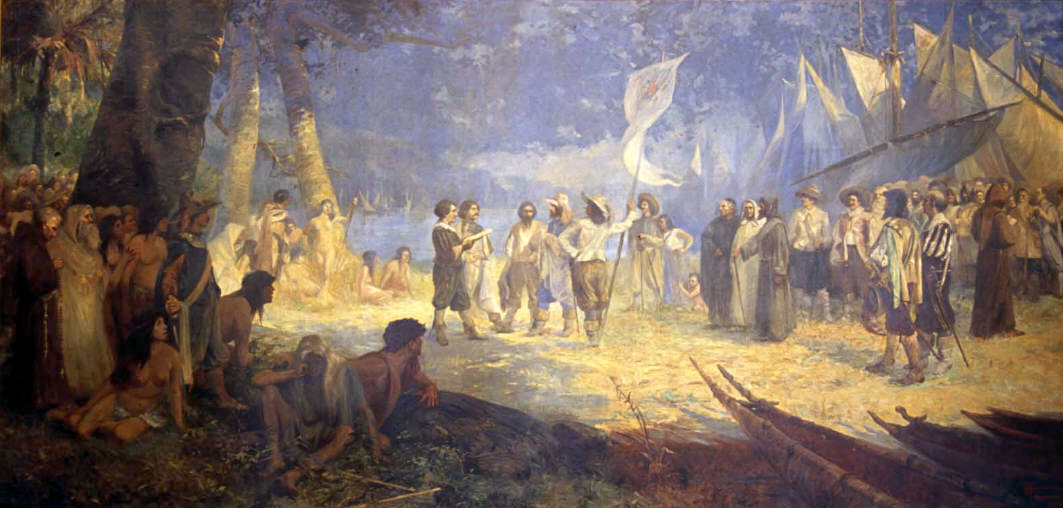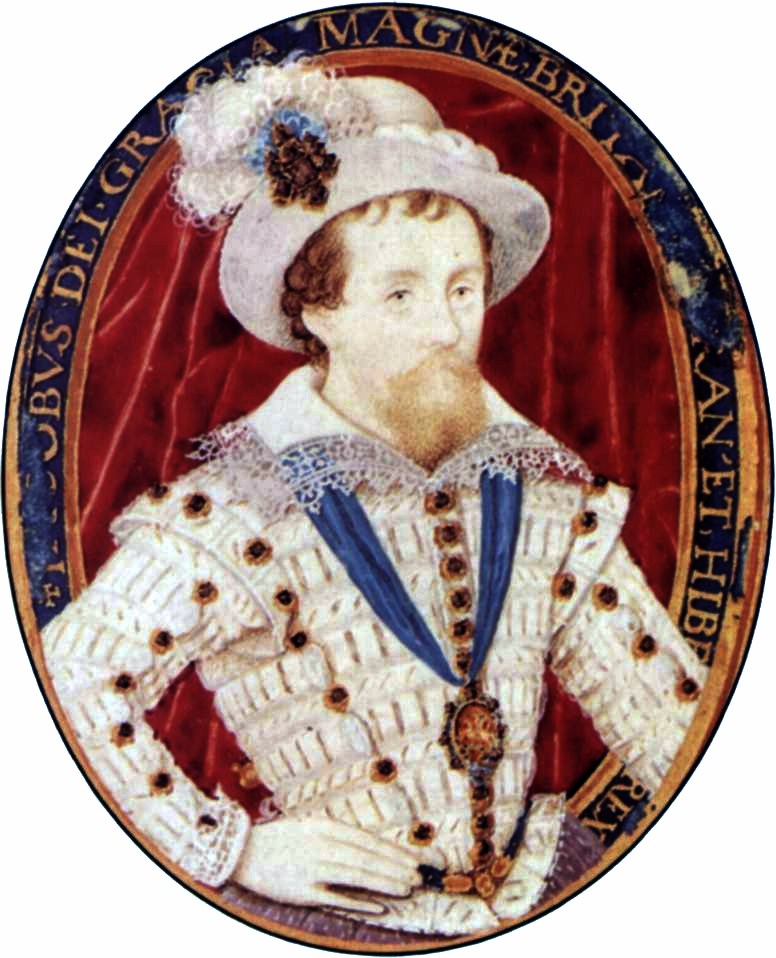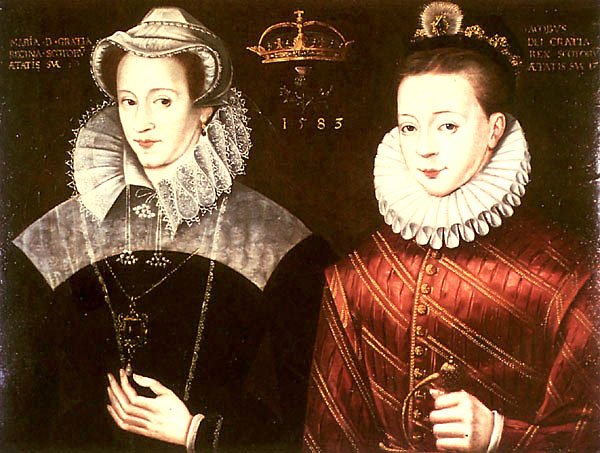|
1616
Events January–March * January 1 – King James I of England attends the masque '' The Golden Age Restored'', a satire by Ben Jonson on fallen court favorite the Earl of Somerset. The king asks for a repeat performance on January 6. * January 3 – In the court of James I of England, the king's favorite George Villiers becomes Master of the Horse (encouraging development of the thoroughbred horse); on April 24 he receives the Order of the Garter; and on August 27 he is created Viscount Villiers and Baron Waddon, receiving a grant of land valued at £80,000. In 1617, he will be made Earl of Buckingham. After the Earl of Pembroke, he is the second richest nobleman in England. * January 10 – English diplomat Sir Thomas Roe presents his credentials to the Mughal Emperor Jahangir, in Ajmer Fort, opening the door to the British presence in India. Roe sailed in the ''Lyon'' under the command of captain Christopher Newport, best known for his role in the Virginia coloni ... [...More Info...] [...Related Items...] OR: [Wikipedia] [Google] [Baidu] |
Ben Jonson
Benjamin Jonson ( 11 June 1572 – ) was an English playwright, poet and actor. Jonson's artistry exerted a lasting influence on English poetry and stage comedy. He popularised the comedy of humours; he is best known for the satire, satirical plays ''Every Man in His Humour'' (1598), ''Volpone, Volpone, or The Fox'' (), ''The Alchemist (play), The Alchemist'' (1610) and ''Bartholomew Fair (play), Bartholomew Fair'' (1614) and for his Lyric poetry, lyric and epigrammatic poetry. He is regarded as "the second most important English dramatist, after William Shakespeare, during the reign of James VI and I, James I."The Editors of Encyclopaedia Britannica (12 June 2024)"Ben Jonson" ''Encyclopedia Britannica''. Archived frothe originalon 12 July 2024. Jonson was a Classics, classically educated, well-read and cultured man of the English Renaissance with an appetite for controversy (personal and political, artistic and intellectual). His cultural influence was of unparalleled breadth ... [...More Info...] [...Related Items...] OR: [Wikipedia] [Google] [Baidu] |
George Villiers, 1st Duke Of Buckingham
George Villiers, 1st Duke of Buckingham ( ; 20 August 1592 – 23 August 1628), was an English courtier, statesman, and patron of the arts. He was a favourite and self-described "lover" of King James VI and I. Buckingham remained at the height of royal favour for the first three years of the reign of James's son, Charles I, until he was assassinated. Villiers was born in Brooksby, Leicestershire from a family of minor gentry. His ascent began notably in 1614 when, aged 21, he caught the attention of the King. His achievements include being knighted and climbing the ranks of nobility, eventually becoming the Duke of Buckingham. Villiers was the last in a succession of handsome young favourites on whom the King lavished affection and patronage. The pair were often accused of sodomy and most historians today believe the relationship was sexual in nature. Villiers' influence extended beyond the King's favour; he played a significant role in political and military affairs, incl ... [...More Info...] [...Related Items...] OR: [Wikipedia] [Google] [Baidu] |
Belém
Belém (; Portuguese for Bethlehem; initially called Nossa Senhora de Belém do Grão-Pará, in English Our Lady of Bethlehem of Great Pará), often called Belém of Pará, is the capital and largest city of the state of Pará in the north of Brazil. It is the gateway to the Amazon River with a busy port, airport, and bus/coach station. Belém lies approximately 100 km (62.1 miles) upriver from the Atlantic Ocean, on the Pará River, which is part of the greater Amazon River system, separated from the larger part of the Amazon delta by ''Ilha de Marajó'' ( Marajo Island). With an estimated population of 1,303,403 people — or 2,491,052, considering its metropolitan area — it is the 12th most populous city in Brazil, as well as the 16th by economic relevance. It is the second largest in the North Region, second only to Manaus, in the state of Amazonas. Founded in 1616 by the Kingdom of Portugal, Belém was the first European colony on the Amazon but did not become ... [...More Info...] [...Related Items...] OR: [Wikipedia] [Google] [Baidu] |
The Golden Age Restored
''The Golden Age Restored'' was a Jacobean era masque, written by Ben Jonson and designed by Inigo Jones; it was performed on 1 January and 6 January 1616, almost certainly at Whitehall Palace. The show Somewhat less is known about this masque than others of the Jacobean era, since none of Jones's designs for the work has survived. The twelve gentleman masquers were styled "Sons of Phoebus," and were awakened and aroused by Astraea, the goddess of Justice and of the "Golden Age" once fled and now returned, with a quartet of the great English poets of the past — Geoffrey Chaucer, John Gower, Edmund Spenser Edmund Spenser (; – 13 January 1599 Old Style and New Style dates, O.S.) was an English poet best known for ''The Faerie Queene'', an epic poem and fantastical allegory celebrating the House of Tudor, Tudor dynasty and Elizabeth I. He is re .... The corresponding figures in the anti-masque were twelve "Evils," ambition, pride, avarice, etc. The speeches wer ... [...More Info...] [...Related Items...] OR: [Wikipedia] [Google] [Baidu] |
Robert Carr, 1st Earl Of Somerset
Robert Carr, 1st Earl of Somerset (c. 158717 July 1645), was a politician, and favourite of King James VI and I. Background Robert Kerr was born in Wrington, Somerset, England, the younger son of Thomas Kerr of Ferniehirst, Sir Thomas Kerr (Carr) of Ferniehirst Castle, Ferniehurst, Scotland, by his second wife, Janet Scott, Lady Ferniehirst, Janet Scott, sister of Walter Scott, 4th of Buccleuch, Walter Scott of Buccleuch. About the year 1601, while an obscure page to George Home, 1st Earl of Dunbar, Sir George Home, he met Thomas Overbury in Edinburgh. The two became friends and travelled to London together. Overbury soon became Carr's secretary. When Carr embarked on his career at court, Overbury became mentor, secretary, and political advisor to his more charismatic friend, the brain behind Carr's steady rise to prominence. King's favourite In 1607, Carr happened to break his leg at a jousting, tilting match, at which King James VI and I was in attendance. According to Tho ... [...More Info...] [...Related Items...] OR: [Wikipedia] [Google] [Baidu] |
William Herbert, 3rd Earl Of Pembroke
William Herbert, 3rd Earl of Pembroke (8 April 158010 April 1630) , of Wilton House in Wiltshire, was an English nobleman, politician and courtier. He served as Chancellor of the University of Oxford and together with King James I founded Pembroke College, Oxford. In 1608 he was appointed Warden of the Forest of Dean, Constable of St Briavels Castle, Gloucestershire, and in 1609 Governor of Portsmouth, all of which offices he retained until his death. He served as Lord Chamberlain from 1615 to 1625. In 1623 the First Folio of Shakespeare's plays was dedicated to him and his brother and successor Philip Herbert, 1st Earl of Montgomery. Origins He was the eldest son and heir of Henry Herbert, 2nd Earl of Pembroke, of Wilton House, by his third wife Mary Sidney. Career Herbert was a bookish man, once tutored by the poet Samuel Daniel, and preferred to keep to his study with heavy pipe-smoking to keep his "migraines" at bay. Nevertheless, he was a conspicuous figure in ... [...More Info...] [...Related Items...] OR: [Wikipedia] [Google] [Baidu] |
Jahangir
Nur-ud-din Muhammad Salim (31 August 1569 – 28 October 1627), known by his imperial name Jahangir (; ), was List of emperors of the Mughal Empire, Emperor of Hindustan from 1605 until his death in 1627, and the fourth Mughal emperors, Mughal Emperor. Born as Prince Salim, he was the third and only surviving son of Emperor Akbar and his chief empress, Mariam-uz-Zamani. Akbar's quest for a successor took him to visit the Hazrat Ishaan and Salim Chishti, List of Sufi saints, Sufi saints who prophesied the birth of three sons. Jahangir's birth in Fatehpur Sikri was seen as a fulfillment of Chishti's blessings, and he was named after him. His parents’ early life was marked by personal tragedy, including the death of his full twin brothers in infancy, which led to a sense of grief in his family. His early education was comprehensive, covering various subjects including Persian language, Persian, Hindustani language, Hindustani, and military tactics. Jahangir's upbringing was heav ... [...More Info...] [...Related Items...] OR: [Wikipedia] [Google] [Baidu] |
James I Of England
James VI and I (James Charles Stuart; 19 June 1566 – 27 March 1625) was King of Scotland as James VI from 24 July 1567 and King of England and Ireland as James I from the union of the Scottish and English crowns on 24 March 1603 until his death in 1625. Although he long tried to get both countries to adopt a closer political union, the kingdoms of Scotland and England remained sovereign states, with their own parliaments, judiciaries, and laws, ruled by James in personal union. James was the son of Mary, Queen of Scots, and a great-great-grandson of Henry VII, King of England and Lord of Ireland, and thus a potential successor to all three thrones. He acceded to the Scottish throne at the age of thirteen months, after his mother was forced to abdicate in his favour. Although his mother was a Catholic, James was brought up as a Protestant. Four regents governed during his minority, which ended officially in 1578, though he did not gain full control of his governmen ... [...More Info...] [...Related Items...] OR: [Wikipedia] [Google] [Baidu] |
James VI And I
James VI and I (James Charles Stuart; 19 June 1566 – 27 March 1625) was King of Scotland as James VI from 24 July 1567 and King of England and King of Ireland, Ireland as James I from the union of the Scottish and English crowns on 24 March 1603 until Death and funeral of James VI and I, his death in 1625. Although he long tried to get both countries to adopt a closer political union, the kingdoms of Kingdom of Scotland, Scotland and Kingdom of England, England remained sovereign states, with their own parliaments, judiciaries, and laws, ruled by James in personal union. James was the son of Mary, Queen of Scots, and a great-great-grandson of Henry VII of England, Henry VII, King of England and Lord of Ireland, and thus a potential successor to all three thrones. He acceded to the Scottish throne at the age of thirteen months, after his mother was forced to abdicate in his favour. Although his mother was a Catholic, James was brought up as a Protestant. Four regents gove ... [...More Info...] [...Related Items...] OR: [Wikipedia] [Google] [Baidu] |
January 6
Events Pre-1600 * 1066 – Following the death of Edward the Confessor on the previous day, the Witan meets to confirm Harold Godwinson as the new King of England; Harold is crowned the same day, sparking a succession crisis that will eventually lead to the Norman conquest of England. * 1205 – Philip of Swabia undergoes a second coronation as King of the Romans. * 1322 – Stephen Uroš III is crowned King of Serbia, having defeated his half-brother Stefan Konstantin in battle. His son is crowned "young king" in the same ceremony. * 1355 – Charles IV of Bohemia is crowned with the Iron Crown of Lombardy as King of Italy in Milan. * 1449 – Constantine XI is crowned Byzantine Emperor at Mystras. * 1492 – The Catholic Monarchs Ferdinand and Isabella enter Granada at the conclusion of the Granada War. * 1536 – The first European school of higher learning in the Americas, Colegio de Santa Cruz de Tlatelolco, is founded by Vicero ... [...More Info...] [...Related Items...] OR: [Wikipedia] [Google] [Baidu] |
Colony Of Virginia
The Colony of Virginia was a British Empire, British colonial settlement in North America from 1606 to 1776. The first effort to create an English settlement in the area was chartered in 1584 and established in 1585; the resulting Roanoke Colony lasted for three attempts totaling six years. In 1590, the colony was abandoned. But nearly 20 years later, the colony was re-settled at Jamestown, Virginia, Jamestown, not far north of the original site. A second charter was issued in 1606 and settled in 1607, becoming the first enduring English colonial empire, English colony in North America. It followed failed attempts at settlement on Newfoundland (island), Newfoundland by Sir Humphrey GilbertGilbert (Saunders Family), Sir Humphrey" (history), ''Dictionary of Canadian Biography'' Online, University of Toronto, May 2, 2005 in 1583 and the Roanoke Colony (in modern eastern North Carolina) by Sir Walter Raleigh in the late 1580s. The founder of the Jamestown colony was the Virginia Co ... [...More Info...] [...Related Items...] OR: [Wikipedia] [Google] [Baidu] |
January 10
Events Pre-1600 *49 BC – Julius Caesar crosses the Rubicon, signalling the start of civil war. * 9 – The Western Han dynasty ends when Wang Mang claims that the divine Mandate of Heaven called for the end of the dynasty and the beginning of his own, the Xin dynasty. * 69 – Lucius Calpurnius Piso Licinianus is appointed by Galba as deputy Roman Emperor. * 236 – Pope Fabian succeeds Anterus to become the twentieth pope of Rome. * 1072 – Robert Guiscard conquers Palermo in Sicily for the Normans. * 1430 – Philip the Good, the Duke of Burgundy, establishes the Order of the Golden Fleece, the most prestigious, exclusive, and expensive order of chivalry in the world. * 1475 – Stephen III of Moldavia defeats the Ottoman Empire at the Battle of Vaslui. 1601–1900 * 1645 – Archbishop William Laud is beheaded for treason at the Tower of London. * 1776 – American Revolution: Thomas Paine publishes his pamphlet ... [...More Info...] [...Related Items...] OR: [Wikipedia] [Google] [Baidu] |








